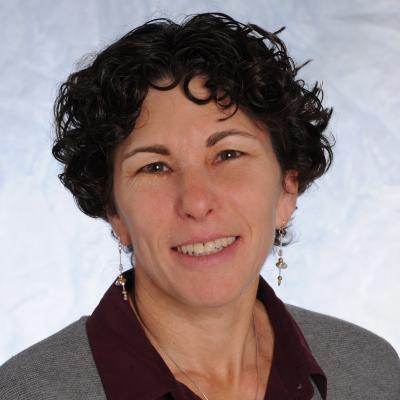Huilan Krenn came to her career in evaluation almost by accident. But looking back she realizes that evaluation was a natural fit with her love of data and desire to give voice to people who are often rendered voiceless by the institutions designed to serve them. For Krenn, director of evaluation and learning for the W.K. Kellogg Foundation (WKKF), data is essential to the foundation’s commitment to build an equitable future in which all of our children will thrive. Data paired with stories of people and communities with long histories of disinvestment can elevate awareness of longstanding racial inequities. Helping people help themselves is a bedrock of WKKF’s approach to philanthropy, and data is essential: the Foundation knows that when people are armed with data about their communities, they are better positioned to help themselves.
The Child Opportunity Index (COI), which was developed with support from WKKF, epitomizes everything Krenn loves about the power of data. Because it is a holistic index that captures multiple dimensions of neighborhoods, it reveals both strengths and weakness of a community. The fact that the COI captures neighborhood (census tract) level data allows communities to see inequities that might be obscured by data captured at larger geographical levels like counties. Speaking of her own community of Battle Creek, Michigan, Krenn explains: “I can see where my godsons live—in a very nice neighborhood—and I can also see where some of their classmates live—in much lower-opportunity neighborhoods just a couple of miles away. When I can actually see the data reflecting these disparities, it allows me to connect the dots.”
This ability to connect the dots means understanding that children live in families and families live in communities and connecting across all dimension that children need to be successful: access to quality early childhood education, health care, good paying jobs for parents, and to live in communities with equitable opportunities. The Foundation has a longstanding commitment to reducing racial and ethnic inequities in child health and wellbeing, and in the past decade it has doubled down on addressing the structural factors that produce those inequities.
Recently, we spoke with Krenn about how investing in data tools and putting data in the hands of the communities they serve is essential to the Foundation’s three priorities: creating conditions for all children to thrive; helping families find and keep stable, high-paying jobs; and supporting equitable communities.
diversitydatakids: Why is it important to put data in the hands of the communities you invest in?
Huilan Krenn: We pick our priority places because they have been historically disinvested by the government and the people who live in these communities have been underserved by the education, health and other systems. It was our founder’s belief in the inherent capacity of people that continues to guide our work today. People in communities have the inherent capacity to make the changes that they want, but they often don't know where to start. Other than their lived experience, they don’t know what the current status of their community is. They don’t have the data or the capacity to find and use it.
Most of the data you and others work with is government issued datasets. That data is very powerful, but not everybody has the capacity to source the data. To get disaggregated data you have to submit special requests—that’s not something most communities can do. And even if they do, they may not have the capacity to analyze the data in order to understand what their own communities look like.
That’s why the COI is such a powerful tool for communities. If I, as a community member, can see the map, right there in front of me, I actually know that that street is my own street. The other street is my neighbor’s, and I know what is going on. I know what the infrastructure looks like, whether there is a grocery store or a park in my neighborhood, and what my children, our children, need to thrive.
Then if I know that a neighborhood lacks infrastructure, or services or programs, I can combine that local knowledge with the COI data that shows how that neighborhood compares to surrounding neighborhoods and use that information to apply for a grant or to advocate for more resources to be directed to a particular part of the community.
DDK: How can data help address systemic inequality that has been in place for decades and centuries?
HK: I was born in China, and I often think of a Chinese saying to describe the Kellogg Foundation’s approach to the work of undoing the harms of structural racism. Loosely translated, the saying is: “A large iceberg is not formed with one day of cold temperatures. It took years of cold temperatures to form ice that tall, or that high, or that solid. And when you have ice that was not formed within one day, your work is going to take a long time to actually defrost it.”
To that end, the Foundation invests in a set of “priority places” in the U.S. (Michigan, Mississippi, New Mexico and New Orleans) and in select micro regions in Haiti and Mexico, and it commits to each for at least an entire generation. That kind of long term commitment to a place means that the Foundation can invest in a wide range of programs that have the potential to transform communities but take time to come to fruition, and it can track change over time.
"Funders—both philanthropy and government—often talk about hearing the voices of the people they serve. One way to do that is through data. Data is really important because it allows voices that would otherwise be unheard to be part of the conversation."
DDK: How does investing in the COI fit into the Foundation’s focus on empowering communities and its commitment to racial equity?
HK: The COI’s holistic approach to measuring and quantifying neighborhood conditions that matter for children’s healthy development, its ability to track change over time, and the commitment to revealing racial and ethnic patterns of child opportunity, complement the Foundation’s approach to change making.
You could think about our investments in terms of “inputs”—the investment in people, programs, capacity building—and “outputs” or outcomes. We are working toward three outcomes: thriving children, working families and equitable communities. I and my colleagues at the Foundation use the COI as part of our strategic planning and evaluation processes. We look at existing conditions across all 29 indicators that comprise the COI and we think about where we can invest, which levers we can influence in partnership with the community.
Funders—both philanthropy and government—often talk about hearing the voices of the people they serve. One way to do that is through data. Data is really important because it allows voices that would otherwise be unheard to be part of the conversation. Instead of making decisions based on the loudest voices, you can make decisions based on facts. And that is very powerful.
Philanthropy can have impact directly, by focusing on specific outcomes, and indirectly, through spheres of influence and by focusing on aspects of communities that are out of our direct control but that we can help shape in positive ways. Investing in a data project like the COI is part of that larger impact that philanthropy can have—it’s a project that has the potential to shape the conversation about racial and ethnic inequities in children’s access to opportunity across the entire U.S. Those conversations are critical—they amplify and strengthen our efforts to shape specific outcomes in our priority places and they advance our commitment to racial equity. Investing in the COI is a contribution to a much larger effort to make the U.S. a more equitable place where all children can thrive, regardless of their race or ethnicity.



